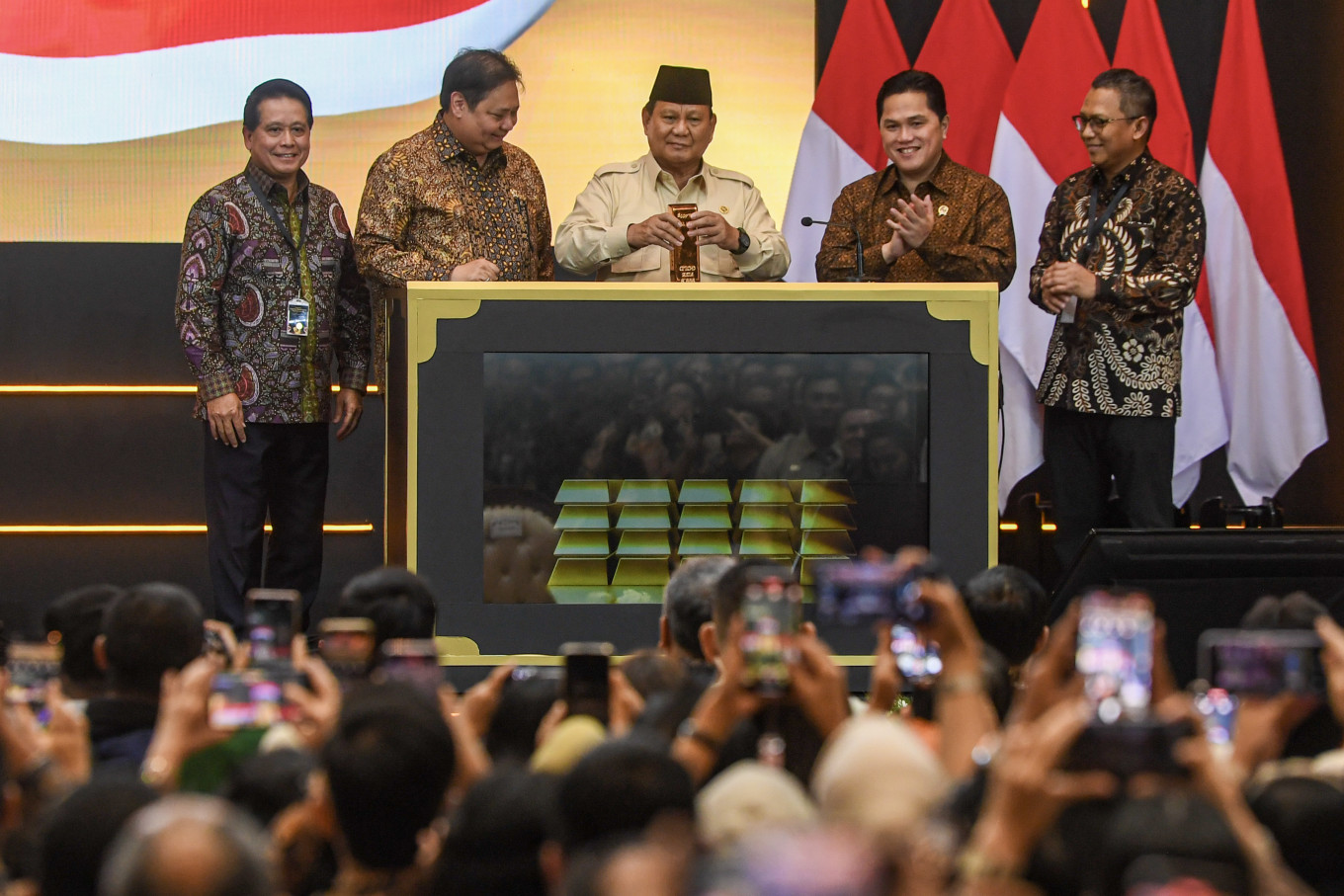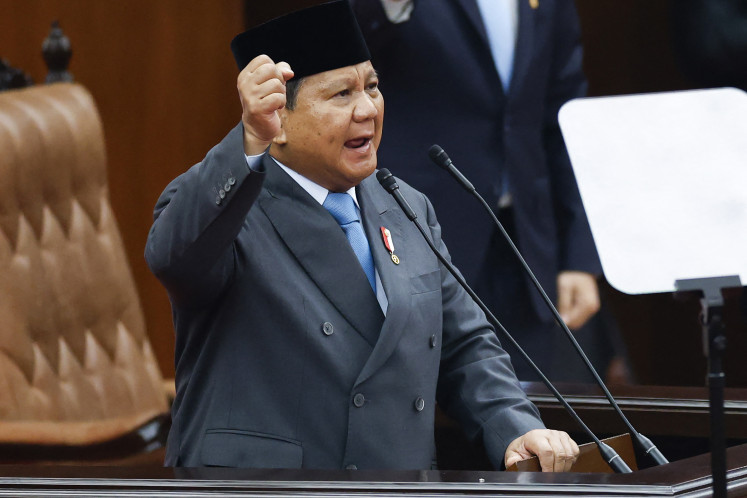Popular Reads
Top Results
Can't find what you're looking for?
View all search resultsPopular Reads
Top Results
Can't find what you're looking for?
View all search resultsIs bullion banking Indonesia’s golden opportunity?
The recent launch of Indonesia's first bullion bank, within the framework of a 2023 financial development law and an OJK regulation, marks a significant step forward in the country's potential entry to the global gold market, as well as greater wealth and economic self-sufficiency.
Change text size
Gift Premium Articles
to Anyone
I
ndonesia is among the top gold producers globally, ranking eighth in the world for production with an estimated 110 metric tons annually and sixth for gold reserves with a staggering 2,600 tonnes, which accounts for 5 percent of global gold reserves as of 2023.
The country’s position is further underscored by the value of its gold reserves, which reached an impressive US$6.699 billion as of September 2024, solidifying its standing in the global gold market.
Building on this momentum, President Prabowo Subianto inaugurated Indonesia’s first bullion bank on Feb. 26, granting initial licenses to state-owned Bank Syariah Indonesia (BSI) and state-owned pawnbroker Pegadaian to engage in bullion business activities through designated units.
This initiative is backed by Law No. 4/2023 on financial sector development and strengthening, which provides financial institutions with a legal foundation to conduct bullion business activities. To regulate the industry, the Financial Services Authority (OJK) issued Regulation No. 17/2024, outlining a structured framework for bullion business activities.
In the global context, bullion business activities have long been associated with bullion banks, which are denominated by precious metals rather than fiat currency. Bullion banking includes lending, investing and managing precious metal assets and derivatives. Major bullion banks are typically located in financial hubs and are members of the London Bullion Market Association (LBMA), and bullion operations have been primarily the domain of established banks.
However, Indonesia’s new regulatory approach allows a wider range of existing financial institutions to engage in bullion business activities, thereby broadening participation in the sector. Article 21 of OJK Regulation No. 17/2024 permits not only banks but also other institutions whose main business activities involve credit distribution or financing, such as pawnshops and financing companies.
This broader inclusion aims to expand the participation of various financial institutions in the bullion market, fostering a more diverse range of players in the country’s evolving gold sector.



















